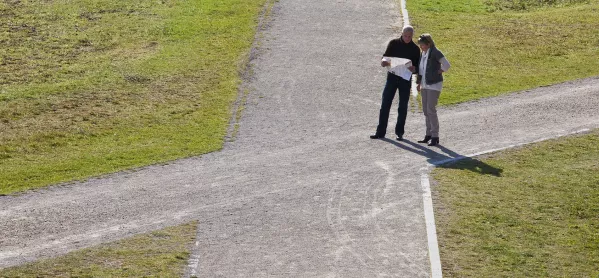Free schools policy has ‘lost its way’, DfE told

Free school policy has “lost its way” and become “too slow” and “too bureaucratic”, the chair of the New Schools Network (NSN) has said.
This “poses a threat” to the “quality of the wider school system”, NSN chair of trustees David Ross warned in a report published by the charity today.
The NSN last year lost its bid to continue to provide free school support, with the Department for Education instead handing the contract to the Premier Advisory Group.
The charity’s report today calls for the DfE to commit to continuing the programme beyond the current spending review period.
- Background: New Schools Network misses out on free-school support contract
- Exclusive: New Schools Network must win two bids to maintain current role
- Special schools: Free schools “won’t solve SEND places crisis”
The report also includes a frank assessment of the free schools programme by former schools minister Nick Gibb, who stepped down from his ministerial role last week,
He states in the report: “In the first stages of the free school programme, we were probably too loose in approving applications that were teaching a curriculum that wasn’t evidence-based.” These free schools “subsequently went on to fail”, he adds.
Mr Gibb also says there were “too many applications with too little focus on the importance of the curriculum”.
“We should have rejected those proposals even if it meant fewer free schools opening,” he says.
He urged the government to “maintain a focus on school autonomy and give proper backing to the role that free schools can play in unleashing new thinking”.
But this needed to be “underpinned by a rigorous focus on high standards and evidence”, Mr Gibb says.
Free schools movement ‘has lost momentum’
The NSN was set up in 2009 by Rachel Wolf, a former adviser to Michael Gove when he was education secretary. It supported free schools for more than a decade.
Today’s report warns that the free school programme is “in danger of losing direction” and free schools are a ”much less effective mechanism for bringing in new ideas and new capacity into education than they used to be”.
It adds: “In recent years, concerns over future funding commitments and the slower pace of schools opening has led to a loss of momentum.”
Mr Ross, who is also the chair of the board of trustees at the David Ross Education Trust - a multi-academy trust with more than 30 schools - said: “Sadly [the report] reveals the way that the free school policy has lost its way in recent years - becoming too slow, too bureaucratic and too closed to new ideas.”
He continued: “This poses a threat not just to the quality and number of future free schools, but to the quality of the wider school system, which they help to challenge. Without a dynamic free school programme, we are at risk of going backwards.”
The report recommends that the DfE should set out details of a new round of applications for free schools, and confirm it will continue the programme beyond the current spending review period.
The NSN also calls for the DfE to fund increased support to free school applicants in communities facing educational disadvantage, and for school system leaders to campaign to secure a commitment to continuing the free school programme in each of the main political parties’ manifestos.
The report states that future waves of the free school programme “should have an explicit emphasis on promoting innovative approaches” and ”should reserve space for projects outside of areas with a basic need for school places”.
Instead of helping establish new free schools, the charity is now focusing on ”helping existing free schools to innovate and find new solutions to educational issues”.
It today reannounced the launch of an innovation fund to provide grants to free schools and academies that have ideas to solve issues in education.
The grants will be awarded by the trustees and will range from £5,000 to £50,000.
The grants were first announced in August last year, with the NSN saying at the time that the fund would be worth £650,000 from September 2022 - but it was delayed, a spokesperson said.
The fund is now worth £1 million in total, and applications are open.
The DfE has been contacted for comment.
You need a Tes subscription to read this article
Subscribe now to read this article and get other subscriber-only content:
- Unlimited access to all Tes magazine content
- Exclusive subscriber-only stories
- Award-winning email newsletters
Already a subscriber? Log in
You need a subscription to read this article
Subscribe now to read this article and get other subscriber-only content, including:
- Unlimited access to all Tes magazine content
- Exclusive subscriber-only stories
- Award-winning email newsletters



